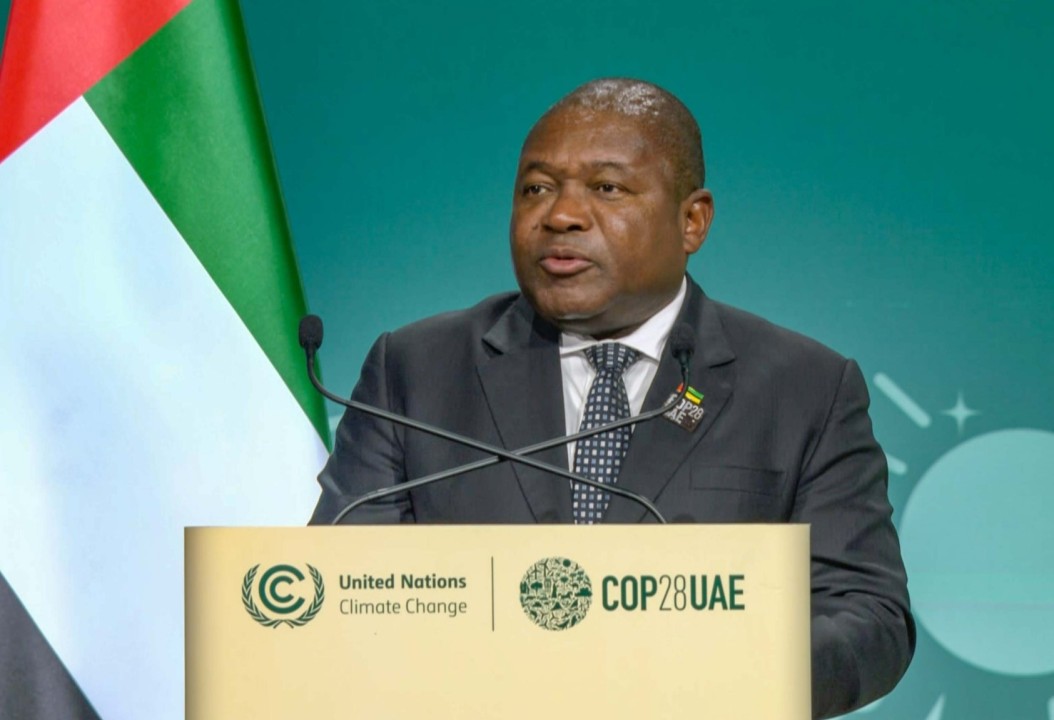Mozambique’s US$80 Billion Energy Transition Plan


Welcome back to the Vault.
This week, we look at Mozambique’s US$80 Billion Energy Transition Plan launched at the ongoing COP climate summit held in Dubai. We also assess Nigeria’s external debt status as the president seeks parliamentary approval for an $8.6 billion loan.
Feel free to share your thoughts with us, check out our website, and let us know if you need any insight on public policies, regulations, and guidelines in Africa.

Mozambique is among the African countries that are extremely vulnerable to climate change risks due to several reasons. Its heavy dependence on agriculture leaves food production and livelihood of its citizens vulnerable to extreme weather events such as cyclones, flooding, and droughts, which have become frequent in recent years. Its population situated at the coast is also at risk from rising sea levels and coastal erosion.
From an economic perspective, its reliance on exports like mineral fuels and oil, which result in high carbon emissions, puts the country at risk of being affected by global climate change mitigation efforts. As the world shifts towards cleaner energy sources and seeks to reduce greenhouse gas emissions, Mozambique’s export markets for these carbon-intensive products may shrink, posing economic challenges for the country. Climate shocks and security risks are expected to negatively impact the economy. In fact, World Bank projections indicate that Mozambique’s GDP could fall by 1.5% in 2023-2025 and the economy could be 13% smaller by 2050 because of climate shocks and security risks.
Government Climate Responses and Energy Transition Plan
The government of Mozambique has implemented various climate change policies over the years. The policies include the National Climate Change Adaptation and Mitigation Strategy (2013–2025), National Development Strategy (2015–2035), and updated Nationally Determined Contributions (NDCs). The most recent policy is the Energy Transition Plan, which is worth $80 billion and expected to span until 2050. The plan outlines priorities and initiatives for the period between 2023-2030. It aims to promote sustainability by expanding renewable energy and increasing access to electricity in the country.
Officially launched and presented at the COP28 climate summit on December 2, the plan focuses on four strategic pillars highlighted below:
While the goal is to achieve total electrification by 2030 through off-grid access, the implementation of the transition plan will continue beyond 2030, requiring an estimated investment need of US$80 billion by 2050 (US$3 billion annually).
This past week, Nigeria’s President Bola Tinubu requested approval from the Nigerian Parliament for US$8.6 billion in external borrowing for the 2024 fiscal year. This will bring the country’s external debt to an estimated US$51 billion next year. Nigeria’s external debt has risen in the last few years, from US$25 billion in 2018 to US$43 billion this year. External debt is currently 8.9 percent of GDP.

Source: Debt Management Office, Nigeria
Whether you are a government official, civil society organization, or researcher, our repository provides comprehensive access to public policies, regulations, and guidelines across Africa. We provide insights and intelligence on these regional policies and regulations for research, advocacy, policymaking, and investing.
Get in touch with us here: <mailto:team@policyvault.africa>.

We’re also tracking the latest current events in the news, and how they may affect the decisions of policymakers. Below are some of the latest developments.
Guinea-Bissau| The government has dissolved parliament after coup attempt
On Monday, Guinea-Bissau President Umaro Sissoco Embalo dissolved the opposition-dominated parliament, days after an attempted coup d’état by the National Guard.
West Africa | Burkina Faso, Mali and Niger to form a confederation
Last Friday, the foreign ministers of Burkina Faso, Mali and Niger recommended creating a confederation. This comes a few months after the three countries formed a pact, known as the Alliance of Sahel States. This new move aims to unite the West African neighbors ruled by juntas within a federation.
Nigeria | President Tinubu presents his budget to the national assembly
The budget of N27.5 trillion (US$34.8) seeks to achieve job-rich economic growth, macro-economic stability, a better investment environment, enhanced human capital development, as well as poverty reduction and greater access to social security. The revenue is projected to be N18.32 trillion with a deficit of N9.18 trillion.
Check some of our recently published insights, which provide you with deeper analysis and context at the intersection of public policy and current events.
Reviewing Buhari’s Administration Cash Transfer Policy

President Muhammadu Buhari established a Conditional Cash Transfer (CCT) programme as part of the broad 2016 Social Intervention Scheme, part of a key campaign promise to reduce poverty through robust social intervention. The Minister of Humanitarian Affairs emphasized the success of the CCT stating in a press brief, that since 2015, over 1 million households (7 million persons) have benefited. However, looking at the overall data, the number of Nigerians in poverty has increased, from 40.1 percent in 2015 to 45 percent in 2023. This data suggests poor households are no better off now compared to 2015. In this article, we discuss some issues and challenges for this. Read more…
How Has Kenyan President William Ruto Fared Six Months into His Tenure?

Elected on the promise of a “Bottom-Up Economic Transformation,” President Ruto has taken several early actions in line with his pledges of economic transformation. He recently promised a KES50 billion annual commitment to the Hustlers Fund initiative —a financial inclusion fund to provide affordable credit to businesses, aimed at boosting economic growth and employment. He has also kept his promise on the housing and settlement plan by launching several affordable housing projects across the country. Read more…
Visit our website for more insights.
We’ve recently launched a complete redesign of the Policy Vault website, and we want YOU to tell us what you think: www.policyvault.africa